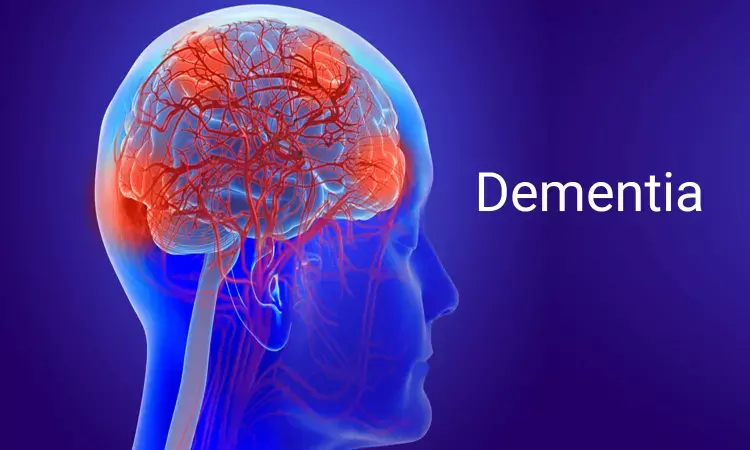- Home
- Medical news & Guidelines
- Anesthesiology
- Cardiology and CTVS
- Critical Care
- Dentistry
- Dermatology
- Diabetes and Endocrinology
- ENT
- Gastroenterology
- Medicine
- Nephrology
- Neurology
- Obstretics-Gynaecology
- Oncology
- Ophthalmology
- Orthopaedics
- Pediatrics-Neonatology
- Psychiatry
- Pulmonology
- Radiology
- Surgery
- Urology
- Laboratory Medicine
- Diet
- Nursing
- Paramedical
- Physiotherapy
- Health news
- Fact Check
- Bone Health Fact Check
- Brain Health Fact Check
- Cancer Related Fact Check
- Child Care Fact Check
- Dental and oral health fact check
- Diabetes and metabolic health fact check
- Diet and Nutrition Fact Check
- Eye and ENT Care Fact Check
- Fitness fact check
- Gut health fact check
- Heart health fact check
- Kidney health fact check
- Medical education fact check
- Men's health fact check
- Respiratory fact check
- Skin and hair care fact check
- Vaccine and Immunization fact check
- Women's health fact check
- AYUSH
- State News
- Andaman and Nicobar Islands
- Andhra Pradesh
- Arunachal Pradesh
- Assam
- Bihar
- Chandigarh
- Chattisgarh
- Dadra and Nagar Haveli
- Daman and Diu
- Delhi
- Goa
- Gujarat
- Haryana
- Himachal Pradesh
- Jammu & Kashmir
- Jharkhand
- Karnataka
- Kerala
- Ladakh
- Lakshadweep
- Madhya Pradesh
- Maharashtra
- Manipur
- Meghalaya
- Mizoram
- Nagaland
- Odisha
- Puducherry
- Punjab
- Rajasthan
- Sikkim
- Tamil Nadu
- Telangana
- Tripura
- Uttar Pradesh
- Uttrakhand
- West Bengal
- Medical Education
- Industry
High vitamin D intake decreases dementia risk, finds study

USA: Higher vitamin D intake decreases the risk of dementia, suggests a recent study in the journal Alzheimer's & Dementia.
Vitamin D is created in skin in response to direct sunlight . It is also found in small amounts in some foods such as oily fish as well as foods fortified with vitamin D such as dairy products, breakfast cereal, and orange juice . Most foods are not a great source of vitamin D necessitating intake of Vitamin D supplementation to boost vitamin D levels.
According to WHO, Dementia is a syndrome in which there is deterioration in memory, thinking, behavior, and the ability to perform everyday activities. Globally, around 50 million people are affected by dementia, and there are nearly 10 million new cases every year.
Low vitamin D circulating levels and low vitamin D intake has been associated with increased risk for dementia. Chen Zhao, Columbia University College of Physicians and Surgeons, New York, New York, USA, and colleagues aimed to examine the association between vitamin D intake and dementia in a multiethnic cohort.
The researchers conducted a longitudinal study of 1759 non‐demented older (≥65 years) participants of the Washington Heights‐Inwood Columbia Aging Project. They were asked to complete a food frequency questionnaire with follow-up visits. Diagnostic and Statistical Manual of Mental Disorders, Fourth Edition (DSM‐IV) criteria were used to diagnose dementia by consensus.
Key findings of the study include:
- During a mean follow‐up of 5.8 years, 329 participants developed dementia.
- Participants with the highest tertile of vitamin D intake from food sources had decreased risk (hazard ratio [HR] 0.72) for dementia compared with those with the lowest tertile, adjusting for age, sex, race/ethnicity, education, apolipoprotein E (APOE)‐ε4, physical activity, Mediterranean diet (MeDI) score, income, depression, hypertension, diabetes, cardiovascular disease, and smoking.
"Our findings show that higher vitamin D intake is associated with decreased risk of dementia in a multiethnic cohort," concluded the authors.
The study, "Vitamin D intake is associated with dementia risk in the Washington Heights‐Inwood Columbia Aging Project (WHICAP)," is published in the journal Alzheimer's & Dementia.
DOI: https://alz-journals.onlinelibrary.wiley.com/doi/abs/10.1002/alz.12096
Dr Kamal Kant Kohli-MBBS, DTCD- a chest specialist with more than 30 years of practice and a flair for writing clinical articles, Dr Kamal Kant Kohli joined Medical Dialogues as a Chief Editor of Medical News. Besides writing articles, as an editor, he proofreads and verifies all the medical content published on Medical Dialogues including those coming from journals, studies,medical conferences,guidelines etc. Email: drkohli@medicaldialogues.in. Contact no. 011-43720751


